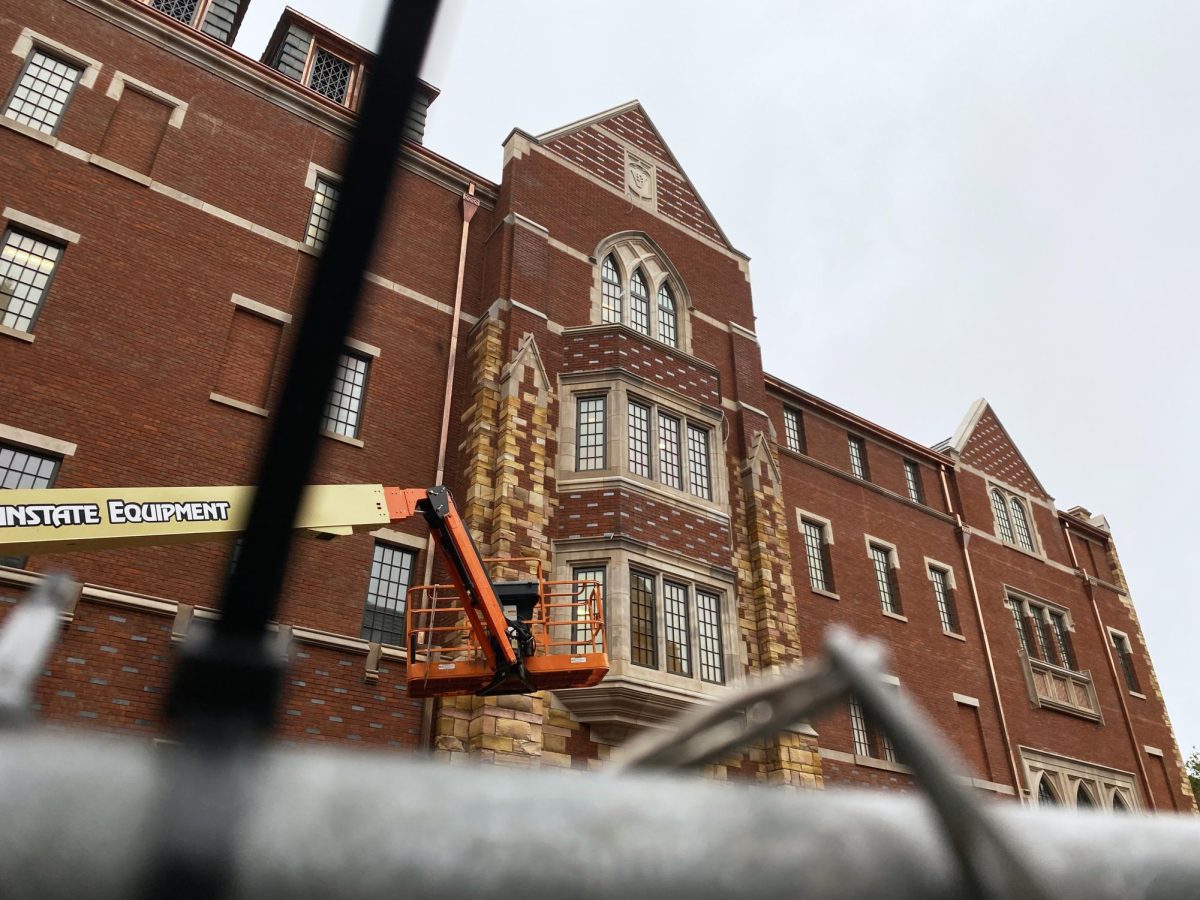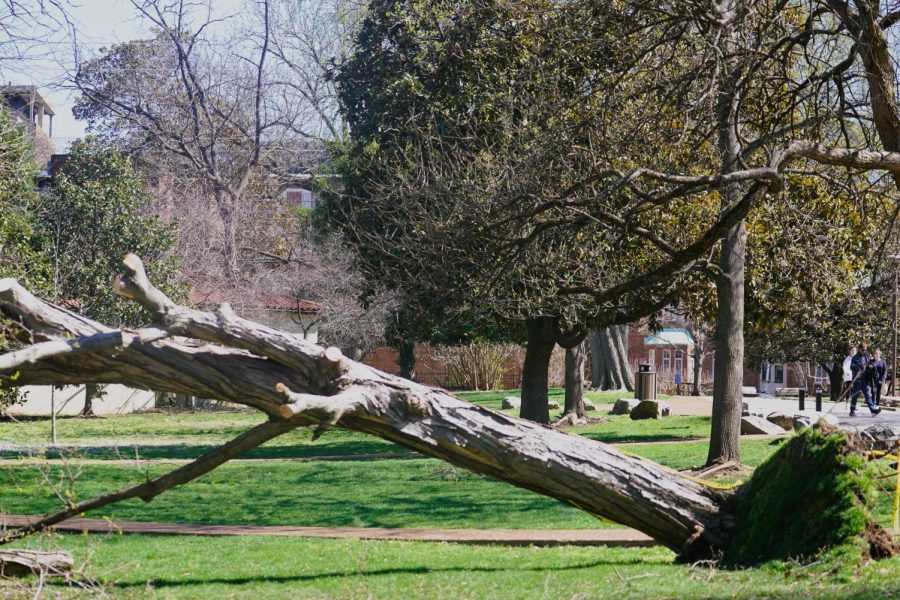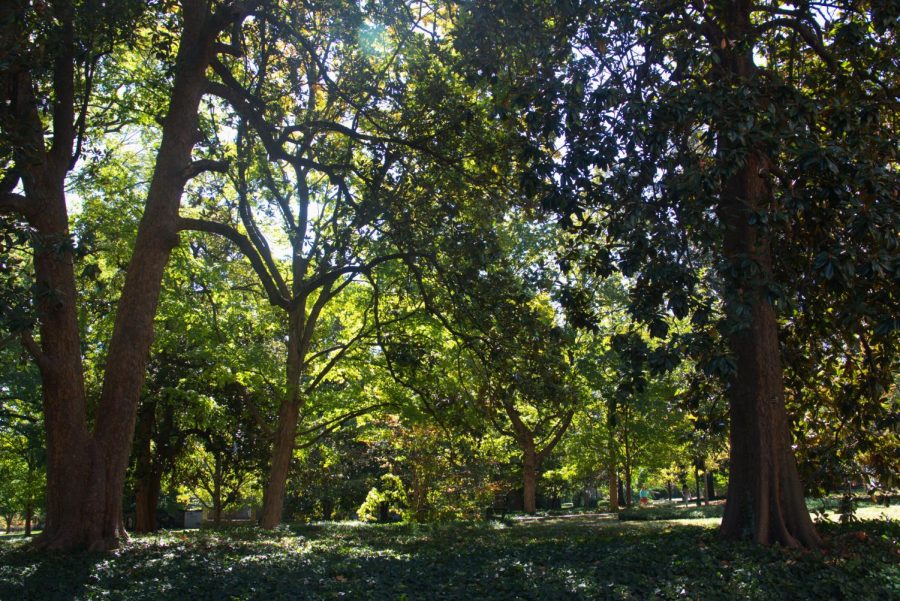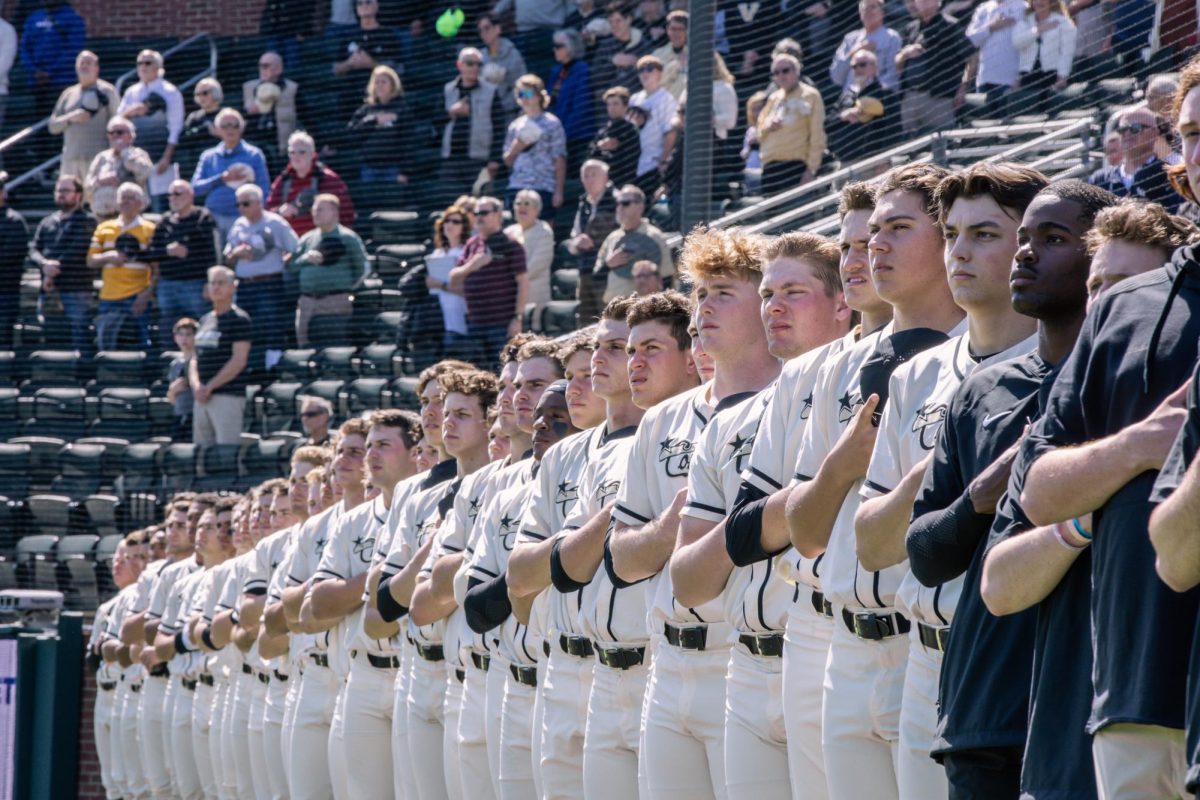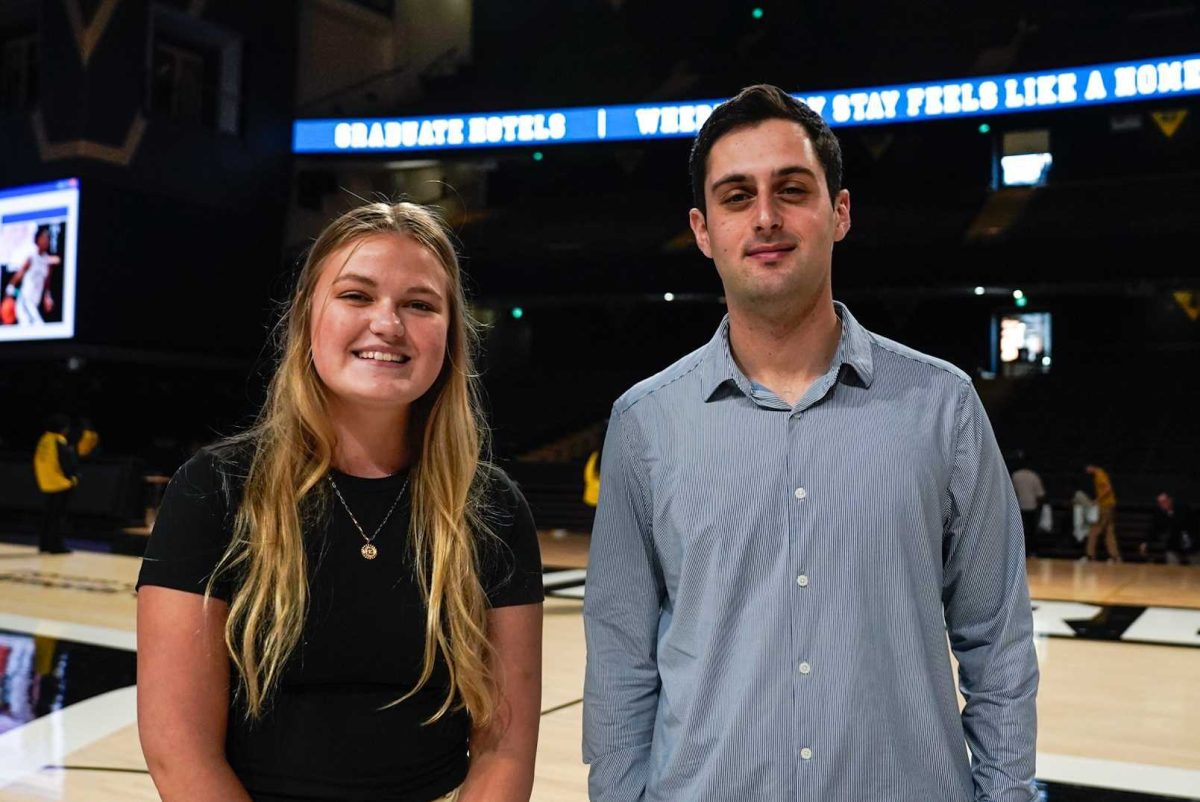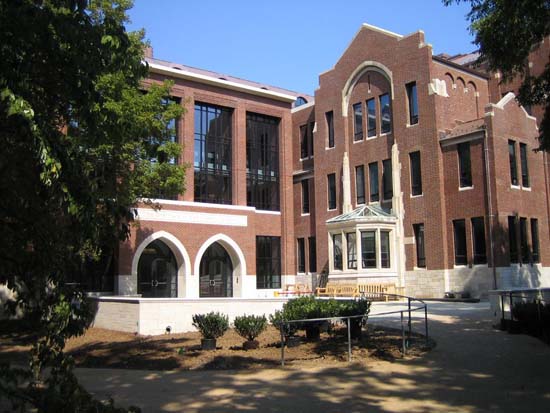
A Mar. 28 town hall, hosted by Provost and Vice Chancellor for Academic Affairs Susan Wente and Vice Chancellor for Administration Eric Kopstain, gathered the community in the Student Life Center to discuss capital planning to revamp academic buildings in the College of Arts and Science’s historic core, as well as modernize science and engineering spaces across campus.
At the event, Wente, Kopstain, along with Dean of Engineering Philippe Fauchet, Dean of Basic Sciences for the School of Medicine Larry Marnett and Dean of the College of Arts and Sciences John Geer, outlined two space studies that have been underway since early 2018. The Provost launched both the Science, Engineering and Research study and the Humanities and Arts and Science Historic Core study to assess the current conditions and capacities of these facilities, and develop a trans-institutional proposal for future improvements.
According to Kopstain, these efforts are in conjunction with FutureVU and the broader academic strategic plan, which address aspects of the university’s evolution over the next 20-30 years.
Kopstain also commented that another driving motivation behind these studies is to foster faculty recruitment and retention.
“Common themes of both studies include providing state of the art research and teaching facilities; leveraging trans-institutional strengths; assessing classroom and teaching lab needs; and providing flexibility and connectivity over the next 5, 10 and 20 years,” Kopstain said.
The findings of these studies are helping the administration and senior university leaders identify opportunities to enhance spaces across campus, providing a platform from which they can take action toward making improvements, Kopstain noted.
Students have also endorsed these efforts, affirming their pertinence and potential value to the community.
“Throughout my past year here I’ve definitely noticed areas for improvement in terms of the academic facilities on campus,” first-year Sarah Kohn said. “As the university moves forward with these plans to transition to the residential college system, I think it’s important that every aspect of our campus continues to evolve with these developments, and that’s what these studies aim to do.”
First-year Sami Rosenberg echoed Kohn’s sentiments, and expressed optimism with regard to the implications of these plans for the future of the university.
“Vandy is incredible, but of course there is always room for growth,” Rosenberg said. “I can’t wait to see how these plans will continue to expand the opportunities and resources available to us here.”
Kopstain also highlighted that they are not currently taking action toward implementing these initiatives. Rather, through deliberation and planning, and by opening up dialogue, they hope to evaluate priorities, next steps, and explore potential avenues for improvement, he said.
“The resultant plans of these studies will enable our Deans, Provost and leadership to identify thoughtful multi-year plans for space improvements that will have a lasting strategic impact,” Kopstain said. “All of this is inspired by our mission to create and deploy ideas, knowledge and leaders that drive positive change in the world.”

